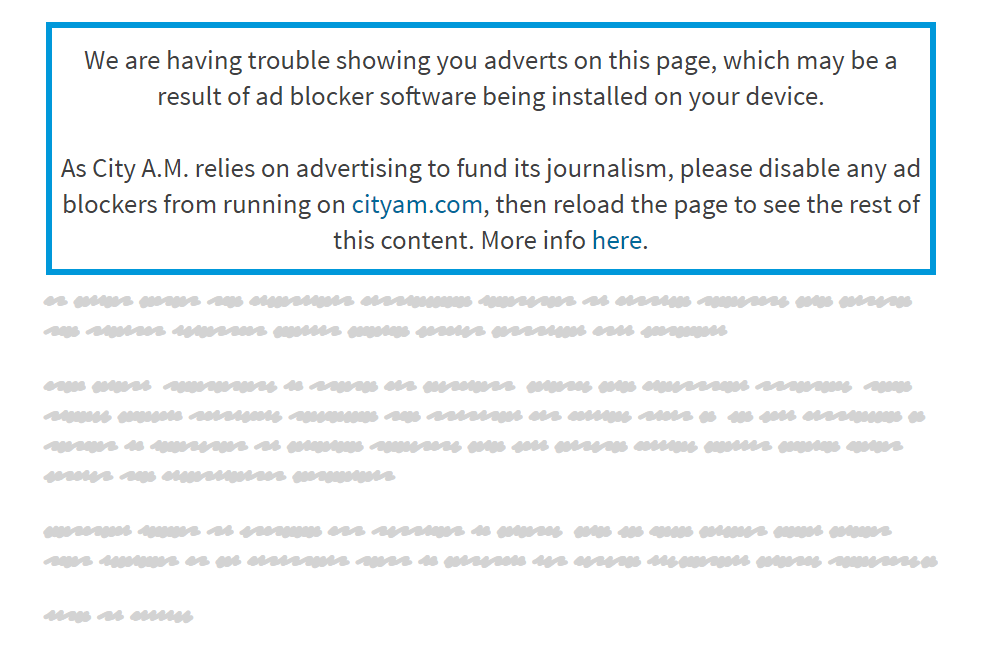
City AM says it has seen more than two-thirds of its desktop readers who use ad-blocking software agree to switch them off after the publication barred access to editorial content for ad-block users.
The title, which publishes free-to-access content both in print and online, said about one-fifth of its desktop readers had an ad-blocker and that 65 per cent of them had turned the software off since it introduced a ban across all browsers in December, following a trial on Firefox in October.
Charles Yardley, chief operating officer at City AM, which claims around 1.2m monthly unique browsers, told Press Gazette: “Objections [to the ad-blocker ban] on the whole are minimal.”
An “ad light” trial for readers accessing City AM content on mobile devices has launched this week in the hopes of recapturing readers using smartphone ad-blockers, who aren’t covered by the ban.
Yardley said, however, that the publication’s digital efforts in terms of strategy were centred around growing its native advertising platform, City Talk, that launched last month.
It allows advertisers to publish content directly to its website using a monthly tenancy fee model and a minimum six-month commitment. The platform’s first client, Invest Edinburgh, is reported to have paid £60,000 for a six-month deal and has so far posted three articles online.
This content is included in the ad-blocker ban, which blurs out articles and shows a message encouraging readers to disable the software, with the publication saying it “relies on advertising to fund its journalism”.
Yardley claimed City AM’s digital and programmatic advertising revenues were set to double year-on-year and that so far ad-blocking had not had a negative impact on the business.
But he said: “As we scale and grow this stream of revenue we will no doubt come under more pressure. It’s a growing industry-wide concern and our freemium cross-platform model is reliant on advertising sales success.”
He added: “If all our users implemented an Ad Blocker it would be impossible to finance a freemium model. It would be churlish to start charging for content at this point and our free model is not going to change – its business is driven by advertising, that’s what funds our business.”
Email pged@pressgazette.co.uk to point out mistakes, provide story tips or send in a letter for publication on our "Letters Page" blog
